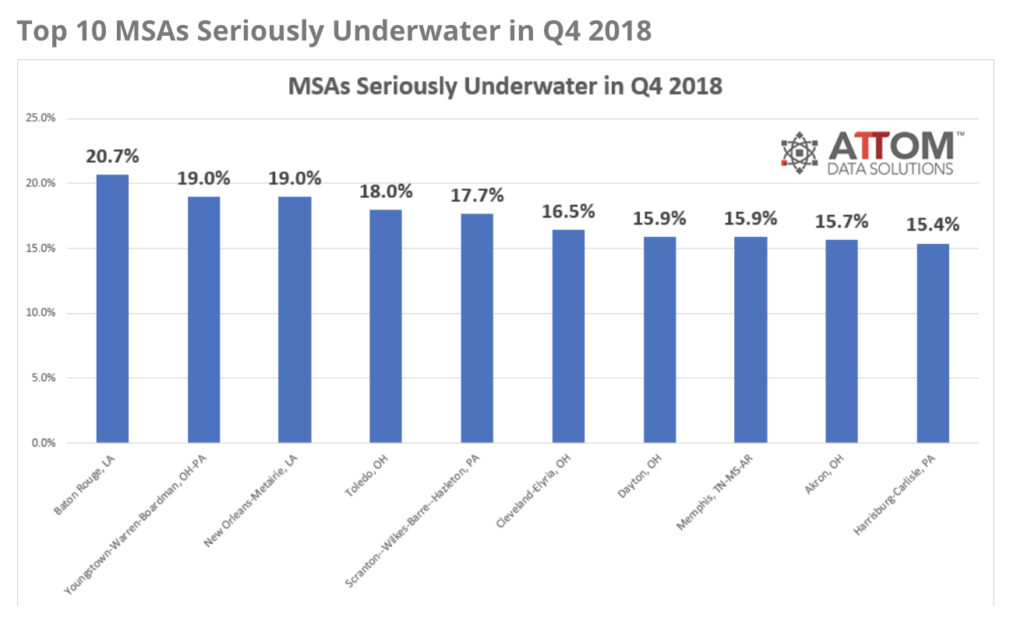How much do banks make selling mortgages?
Contents
- 1 How much do banks make selling mortgages?
- 2 What is a business note?
- 3 What is a note income?
- 4 Are notes the same as bonds?
- 5 Are structured notes fixed-income?

They usually earn a commission of about 1% -2% of the loan value, which the borrower or lender can pay. When you take out a bigger loan, your mortgage broker makes more money. The total fee of the mortgage broker can be paid in various ways, including cash or a supplement to the balance of the loan.
How much profit do banks make on mortgages? Independent mortgage banks and mortgage subsidiaries of authorized banks reported earnings of $ 1,675 for each loan made in the second quarter. That’s more than the profit of just $ 285 per loan in the first quarter and the highest profit since the third quarter of 2016 when profit reached $ 1,773 per loan.
Can you make money selling mortgages?
Mortgage lenders can make money in a variety of ways, including initiation fees, yield range premiums, discount points, closing costs, mortgage-backed securities, and loan servicing. … Mortgage-backed securities allow lenders to profit by packing and selling loans.
How much do mortgage agents make?
There are mortgage brokers who earn well above the annual salary of doctors and lawyers. On average, however, mortgage brokers earn about $ 100,000 a year.
Is owning a mortgage company profitable?
Mortgage brokerage firms can have a high profit margin. Smaller companies generally have a higher margin than larger ones, due to the fact that smaller companies have lower overhead and running costs. Margins can range from 10% to 50% or more, depending on the size of the operation.
How much can you make selling mortgage?
Mortgage brokers earn an average of $ 92,262 a year in the United States, but that number can vary depending on factors such as experience level and geographic location.
How much commission do mortgage lenders make?
On average, mortgage brokers charge a fee of 2.25% for each loan, but under federal regulations they cannot charge more than 3% of the loan amount.
Do mortgage lenders get commission?
While mortgage banks and brokers do not earn commissions as part of their regular business functions, they pay commissions to loan originators or loan officers who perform the sales function instead.
How much does a mortgage lender make per loan?
Mortgage officers usually receive 1% of the total loan amount. We investigate the reasons why a loan officer’s commission is bad for consumers. And we offer an alternative – Better Mortgage has credit officers who never receive a commission.
How much commission does a mortgage broker get?
How much are intermediaries actually paid? On average, the mortgage broker’s commission is 0.15% of the loan balance. That’s roughly $ 600 a year on a loan balance of $ 400,000.
Is it common for banks to sell mortgages?
It is very common for mortgage loans to be sold and this is not a cause for alarm. You should receive notification by mail before and after the sale.
Is it bad if your bank sells your mortgage?
Transferring or selling your mortgage loan should not affect you. “The Lender may not change the terms, condition or interest rate of the Loan from those specified in the documents you originally signed. Nor should the amount of payment just change. And that shouldn’t affect your credit score, ”says Whitman.
Why do banks sell mortgages?
Why banks sell mortgages Banks make money on your mortgage by collecting interest. … So if they want to make faster money, they will sell your mortgage loan with a commission. It gives instant cash. Your lender can also sell your loan as a way to release capital.
Why is my mortgage being sold so often?
In the hope of faster profits, lenders will often sell the loan. If servicing a loan costs more than the money it brings in, lenders can try to sell its servicing to reduce their costs. The lender can also sell the loan itself to free up money to get more loans.
What is a business note?

Usually, a list of documents is compiled by a lawyer, including one showing which property is being sold exactly and another stating the terms of payment. The latter is called a business bill, a promissory note or simply a bill of exchange.
How to sell a business note? How to sell a business note
- Get a quote.
- Accept the offer (either a full purchase offer or a partial purchase offer)
- Send a copy of the debenture and a copy of the contract for the sale of property or mortgage on movable property (depending on the country and type of business sale)
What is a bank or business note?
Business notes arise when a business seller decides to help finance the sale of their business. … He or she finds a buyer who does not want to deal with hassles, high rejection rates or a painfully long process of taking out a conventional bank / SBA loan, so the buyer asks the seller to finance the sale.
What is a business bank statement?
A bank statement is a list of all transactions for a bank account in a given period, usually monthly. The statement includes deposits, expenses, payments, as well as opening and closing balances for the period.
Why do companies issue notes?
Companies issue these notes to finance every aspect of their business, from new product launches to more expensive debt repayments. In exchange for the loan, the companies agree to pay the investors a fixed return over a period of time. Even legal debentures are not without risks.
How should a business bank statement look like?
It should include the name of the financial institution, address and details of customer support (eg telephone number and website). If there is a specific number for reporting deviations, your statement could include it.
What is a note in accounting?
Home »Accounting Glossary» What is a note? Definition: A bill of exchange, often called a promissory note, is a written promise to pay a certain amount of money in the future. In other words, a note is a loan agreement between the maker and the payee. Some banknotes are also paid for at the request of the maker.
What does note mean in accounting?
A note is a legal document that serves as an IOU from a borrower to a lender or investor. The notes have similar characteristics to bonds in which investors receive interest for holding the note and return the original amount invested – called the principal – to a future date.
What are notes in financial statements?
The notes to the financial statements disclose the accountant’s detailed assumptions in preparing the enterprise’s report: income statement, balance sheet, statement of changes in financial position or statement of retained earnings. The notes are essential for a full understanding of these documents.
What is a note as an asset?
Definition of receivables for notes A receivable note is a written promise to receive a certain amount of cash from another party on one or more future dates. The holder of the banknote treats it as an asset.
What does it mean to sell a note?
Selling a banknote is a decision that is not always right for everyone, but can be extremely beneficial or cost effective for many people with notes. When selling a banknote, the seller receives a lump sum of cash in exchange for payments for the duration of the banknote.
How much does it cost to sell a mortgage note?
First-position notes that do not meet the above requirements typically sell for between $ 0.70 and $ 0.85 per $ 1 of principal remaining. If you want to offer seller financing to a buyer, consider many factors that determine the value of a mortgage bill. Ensure that your customer fulfills their end of the job.
Why do banks sell notes?
Why do banks sell banknotes? Banks sell banknotes as a regular part of their business for recapitalization. Many banks provide loans (mortgages) with the intention of selling these loans on the secondary market.
What is a note income?

Many people use banknotes that can be obtained as an additional source of income. Simply put, a banknote is a loan you give to someone else. … You must document that you have received banknote income for the last twelve months. You can document your income notes by submitting your bank statements or other proof of receipt.
What does it mean to buy notes? When you invest in banknotes, you are buying debt secured by a piece of property, a promise of repayment, and (in general) a right to enforce and repay your investment if the borrower fails to meet its obligations or make payments. You just don’t own a physical property.
Is a note receivable income?
Explanation of receivables from receivables Recognize income from receivables from notes as interest income in the income statement. Thus, when payment is made, the amounts affect the balance sheet as well as the income statement.
Is bills receivable an asset or income?
Receivables on bills of exchange in the balance sheet Short-term receivables for bills of exchange – Bills of exchange maturing within one year from the balance sheet date are classified as current assets in the balance sheet. Long-term receivables on bills of exchange – Bills of exchange maturing after one year from the balance sheet date are classified as non-current assets in the balance sheet.
How do you record notes receivable?
Assuming that no corrective postings have been made for the calculation of interest income, the paid debenture is recorded by debiting cash for the amount paid by the client, crediting receivables for the value of the debenture principal and crediting interest income for earned interest.
What is notes receivable classified as?
Classification of receivables by bonds Receivables by bonds should be classified in the balance sheet as current assets if maturing within 12 months or as long-term (ie long-term) if maturing in more than 12 months.
What is a note in real estate?
A mortgage is a type of contract. What makes it special is that it is a real estate secured loan. A mortgage is a document that you sign at the end of the closing of the house. It should accurately reflect all the terms of the contract between the borrower and the lender or be corrected immediately if not.
What is the difference between a note and a mortgage?
The difference between a promissory note and a mortgage. The main difference between a bill of exchange and a mortgage is that a promissory note is a written contract that contains the details of a mortgage loan, while a mortgage is a loan secured by real estate.
What is the role of the note in real estate?
In short, a note is simply an IOU – an agreement between the borrower and the lender in which the borrower agrees to repay the lender under the terms set out in the note. Notes on real estate in particular are debts that use part of the real estate as collateral for a loan.
What is the difference between a note and a loan?
A promissory note is a simple document that is not as complex as a loan agreement, and can be shorter and less detailed. … Unlike a bill of exchange, a loan agreement imposes obligations on both parties, which is why both the borrower and the lender must sign the agreement.
How does a note investment work?
Investors usually buy uncollectible banknotes from other lenders at a discount to face value. Lenders and investors sell their uncollectible notes to quickly cash in and avoid lengthy and costly foreclosure proceedings.
How does an investment note work?
A note is a legal document that serves as an IOU from a borrower to a lender or investor. The notes have similar characteristics to bonds in which investors receive interest for holding the note and return the original amount invested – called the principal – to a future date.
Is buying notes a good investment?
If you are looking for passive income without buying physical real estate, a mortgage can be an ideal real estate investment. You will receive a monthly income in the form of repayment of principal and interest on the basic mortgage.
Can you make money investing in notes?
Investing in banknotes can be a worthwhile endeavor in most scenarios, but in almost all cases, the higher the discount you negotiate when buying, the better your chances of making more money by investing.
Are notes the same as bonds?

A bond is a debt issued to the public, which buys bonds. The minutes are a debt agreement between the county and the financial institution.
Are bonds called notes? Treasury bonds, treasury bills and treasury bills are all fixed income securities issued by the government that are considered safe. … T-bonds mature anywhere between two and 10 years, with two-year interest payments but lower yields.
What are notes and bonds?
Treasury bills, bills, and investment bonds are fixed-income issues issued by the U.S. Treasury Department. These are the safest investments in the world as they are guaranteed by the US government. This low risk means they have the lowest interest rates of all fixed income securities.
What are the uses of notes and bonds?
The conclusion is that payable bonds and bonds, for all practical purposes, are essentially the same thing. Both are debts that companies use to finance business, growth or capital projects.
What is the difference between Treasury notes and bonds?
The main difference between the two is the maturity. While treasury bills have a maturity of up to 1 year, government bonds are investment instruments with a maturity of more than one year. If you wait until maturity, you will repay your principal along with interest.
Are bonds the same as notes payable?
The conclusion is that payable bonds and bonds, for all practical purposes, are essentially the same thing. Both are debts that companies use to finance business, growth or capital projects.
Is bonds payable a current asset?
Bonds maturing (or maturing) within one year of the balance sheet date will be presented as a current liability if the bond issuer has to use current assets or will create a current liability to pay bondholders when the bonds mature. … This type of investment is known as a bond withdrawal fund.
What are notes and bonds payable?
For accounting purposes, bonds payable and bonds are similar. That is, both are 1) written promises to pay interest and repay the principal or amount due at certain future dates, 2) both are stated as liabilities and 3) interest is accrued as a current liability.
Are structured notes fixed-income?

What are notes structured with fixed income? Fixed income notes are a type of fixed income investment for investors who want to increase yields, express a special view of interest rates or protect existing investment portfolios.
Are structured products considered fixed income? Structured investment can vary in its scope and complexity, often depending on the risk tolerance of the investor. SIPs typically involve exposure to fixed income markets and derivatives. … This type of product is a combination of fixed income CDs and long term call options on the Nasdaq 100 index.
Are structured notes an alternative investment?
Structured products usually have two components – a note and a derivative, which is often an option. … Structured products are usually created to meet specific needs that cannot be met by standardized financial instruments available in the markets. They can be used as: an alternative to direct investment.
What are structured investment products?
Structured investment products or SIPs are types of investments that meet the specific needs of investors with a customized product mix. SIPs usually involve the use of derivatives. They are often created by investment banks for hedge funds, organizations or the mass market of physical clients.
What type of investment is a structured note?
A structured note is a debt obligation – basically as an IOU from the issuing investment bank – with an embedded derivative component. In other words, it invests in assets through derivative instruments. A five-year bond with an option contract is an example of a type of structured note.
What is an example of an alternative investment?
An alternative investment is a financial asset that does not fit into the conventional categories of capital / income / money. Private equity or venture capital, hedge funds, real estate, commodities and tangible assets are examples of alternative investments.
What is a structured income note?
A structured note is a debt security issued by financial institutions. Its yield is based on stock indices, individual stocks, basket of stocks, interest rates, commodities or foreign currencies. The performance of a structured note is related to the return on the underlying asset, asset group or index.
What happens when a structured note matures?
The bank issues a structured banknote without an interest rate. … In this case, the bank would repay the full principal plus interest of 2% when the note matures (based on the bond component of the debenture).
What is an income note?
In short, income is the promise of a large international bank that it will make regular payments as long as certain conditions are met.
Why do banks issue structured notes?
The value of a derivative is derived from the underlying asset or group of assets, also known as the reference value. Investment banks argue that structured bonds offer asset diversification, the ability to exploit stock market results and hedge against falling.
What type of investment is a structured note?
A structured note is a debt obligation – basically as an IOU from the issuing investment bank – with an embedded derivative component. In other words, it invests in assets through derivative instruments. A five-year bond with an option contract is an example of a type of structured note.
What is a structured investment note?
A structured note is a debt security issued by financial institutions. Its yield is based on stock indices, individual stocks, basket of stocks, interest rates, commodities or foreign currencies. … The bond part of the banknote takes up most of the investment and provides the main protection.
Are structured notes investment grade?
Structured notes are not direct investments, but derivatives. This means tracking the value of another product. The return on structured bonds depends on the issuer repaying the underlying bond and paying the premium on the related asset.
